We are living in a time where it is hard to be kind towards ourselves and others. From the news to social media posts, we are constantly being exposed to negativity and cruelty. It can feel like a struggle to get through each day. Unfortunately, this can result in you being less compassionate towards yourself and the people around you.
In this blog post, we will discuss seven simple tips that will help you build self-compassion for yourself and compassion towards others
But first…
- What is compassion?
- Another type of compassion
- Qualities of compassion
- 7 tips to becoming more compassionate
- To wrap it all up
What is compassion?
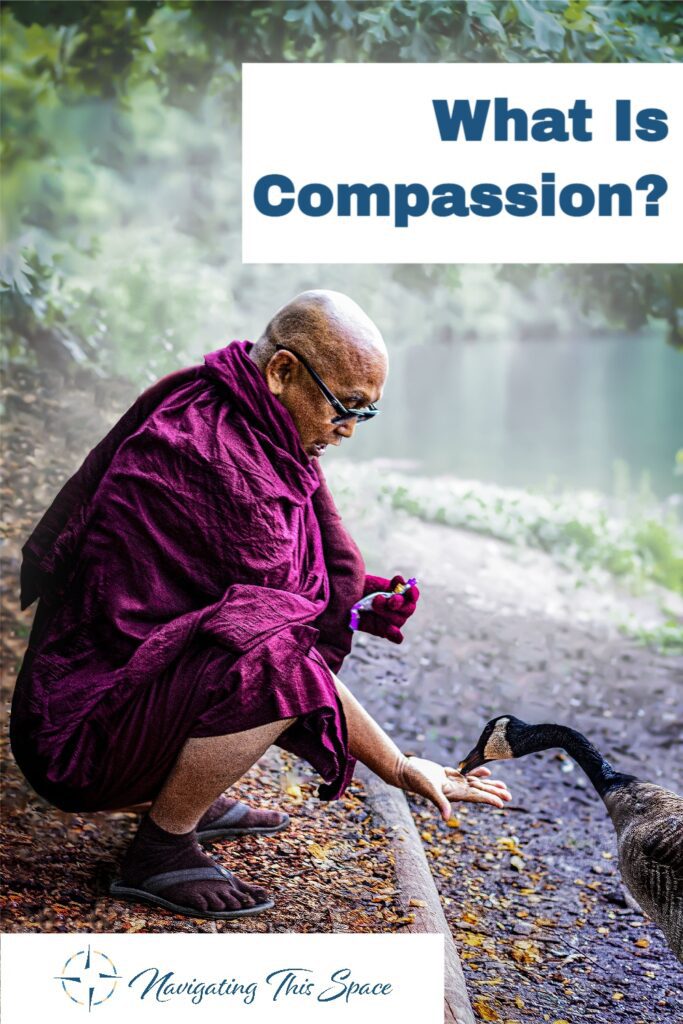
According to the Oxford dictionary, compassion is “a strong feeling of sympathy for people or animals who are suffering and a desire to help them.“
The Merriam-Webster dictionary also defines compassion as “a sympathetic consciousness of others’ distress together with a desire to alleviate it.”
For me, it is a feeling that you experience from seeing someone struggle, and the urge to help them overcome it.
Compassion is sharing the pain another person is feeling.
It is also a reminder that none of us are alone in our struggles.
How do you know if you are compassionate?
It’s easy to tell someone to have compassion towards another person, but has anyone ever told you how to do it?
The truth is we expect people to know how to care for another person’s suffering but in most cases, they don’t.
Most people are so wrapped up in their own thoughts of suffering that other people’s pain becomes oblivious to them.
For example:
I was on a JetBlue flight. And as soon as the drinks started to come out, someone had a medical emergency.
Luckily, there were two registered nurses aboard who jumped to help right away.
But forty-five minutes later, someone started asking about the food and drinks. I was shocked!
It became crystal clear that they lacked compassion for the person who needed medical attention and was more concerned about their needs.
So, how do you really know if you have compassion?
Unlike the person who was more concerned about their hunger than another person’s life, you have to break out of your own struggles to see the pain of another person and then offer a helping hand.
Is compassion a sign of weakness?
No. Your ability to feel the pain of someone else and show them that you care is certainly a sign of strength.
In most cases, it takes more strength to be kind and caring than it takes to be cold and unfeeling toward someone who is struggling.
Is Compassion Natural or Learned?
I believe we are all born with compassion. If you’ve ever observed toddlers at play, when one of them gets hurt another one quickly tries to soothe them so they don’t cry.
We’re wired from the beginning to have empathy for other humans and animals, and we feel their pain as our own.
But as life’s lessons and struggles get more difficult, we unlearn compassion for others and ourselves because numbing the pain seems to be the best route to take.
Unfortunately, when we stop caring for ourselves, our ability to care for anything starts depleting. It becomes a vicious cycle of neglecting both yourself and your neighbors because running from the pain hurts less.
You can train your brain to be more compassionate by learning self-compassion. The more you care about yourself, the more you’ll care about others. You’ll begin to see people as an extension of yourself.
You’ll find it hard to watch someone struggling without trying to help. You start to see yourself in their shoes. And because of this, you’ll do whatever it takes to stop the pain.
By applying what you would do for yourself to someone else, you’ll start rebuilding your compassion to the level you were born with.
How do you have compassion for someone who hurt you?
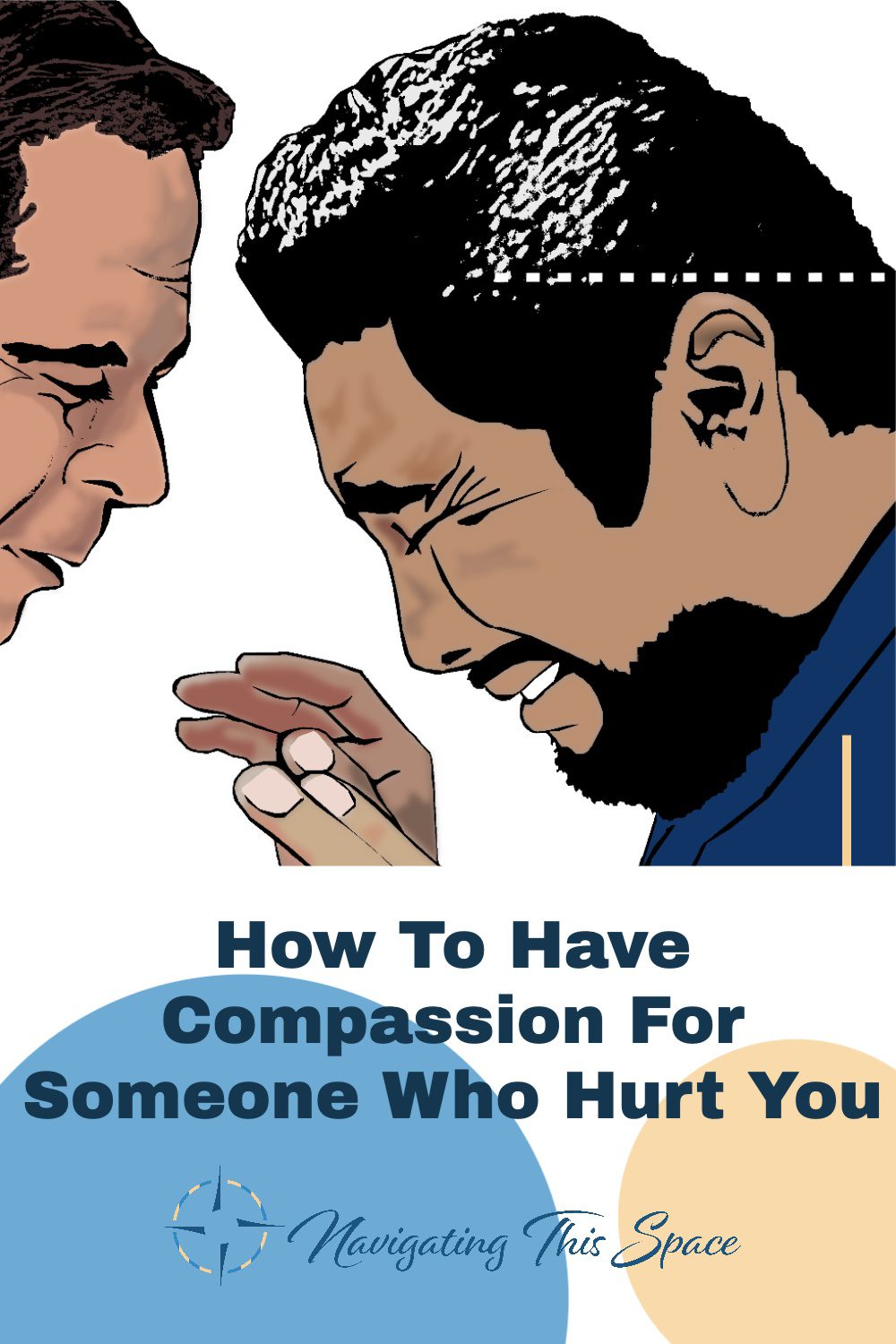
Having compassion for someone who has hurt you is hard, but you can do it.
The first thing to remember is that person is human just like you and is likely going through their own struggles. And, they probably didn’t mean to hurt you intentionally either.
This is where self-compassion comes in handy. If someone hurts you, you will find it easier to forgive them when you think about their situation from their perspective. Walk a mile in their shoes as the saying goes.
The best thing to do if that person continues to hurt you is to simply walk away. There’s a limit to everything, and constantly putting yourself in harm’s way is only causing you more harm than good.
Of course, if someone is more of a threat than an annoyance and is seriously harming people or animals and not just hurting your feelings from time to time, you should take the necessary steps to make them stop.
With that said, it’s still important to forgive them because without forgiveness, moving forward in life will be much more challenging.
Forgiveness allows you to release the pain and to grow.
You have to let go of the baggage in order to fly.
Another type of compassion
Empathy is a powerful tool. It’s the ability to understand how another person feels because you have felt that same feeling before and know exactly what they’re going through.
But like anything else, it has its limitations. Empathy only lasts as long as your understanding of their situation does. Once you’ve moved on from that situation, your mind goes back to your struggles. This is why self-compassion is important and a work in progress.
Some people have developed an empathy habit that is more active in their lives. This practice turns into natural compassion for themselves and the world around them.
So, what is self-compassion
Self-compassion is the kindness that you give yourself. It’s the ability to be kind and understanding when things go wrong or are painful, without judgment.
It allows us space for our own negative feelings so that we can process them deeply and healthily find relief from them.
Developing a self-compassion practice is a way to cultivate an inner kindness that helps you feel less isolated and have more empathy for yourself and the world you live in.
A self-compassion practice must include:
– kindness and understanding
– experience your feelings without judgment or criticism of yourself
– recognizing the pain you feel is part of being human.
Spend time doing things that make YOU happy, such as taking care of your physical needs, getting enough sleep, and eating well.
You need to be gentle with yourself.
Qualities of compassion
There are certain qualities you need to have to cultivate compassion, kindness, and understanding toward yourself and those you come in contact with.
Those qualities include:
– patience
– kindness
– understanding
– empathy
Compassion is about being kind to yourself and understanding your pain and the pain of those around you.
You need to be able to put yourself in the other person’s shoes without judging them or feeling sorry for them. Do not pity anyone. This only brings more pain than comfort to the person you’re trying to help.
A compassionate person has both mental and physical characteristics. They have learned that the best way to care for people is to be kind and to understand that kindness is not weakness.
They have learned that offering a helping hand is part of what makes us human.
You can be compassionate by giving someone your time or a listening ear when they need it the most. Of course, without expectations of being repaid.
Take care of those around you because everyone is suffering. Do not judge the level of their struggle. Not everyone can handle things as you can. We all have different levels in life to overcome, and what I can handle might not be what you can handle.
Now that you have an understanding of what compassion and self-compassion are, here are the steps to rebuild your compassion for people and yourself.
7 tips to becoming more compassionate
1. Understand why you are the way you are
You are a unique individual. There is no one else like you. This is why you must understand why you do the things you do.
A lot of your thoughts stem from past experiences. What you think is what you believe, and those thoughts will become your reality.
Find out why you react in certain ways by looking back on old memories.
Your past experiences shape your future. The only way to move forward efficiently is to revisit the past and decipher it.
Journal the traumatic and fun memories you have. Doing so will help you to find a pattern and bring clarity to understanding your personality.
Talk to family members and friends about your memories. This will help you keep a clear perspective of what happened in the past.
Nobody is perfect. It’s important not to forget where you came from, so you don’t repeat mistakes.
2. Practice self-compassion
Be kind to yourself. Your mental health depends on how well you treat yourself.
Self-compassion plays a huge role in self-care, your mental strength, and your ability to be resilient.
Self-compassion comes from a place of love and kindness, not a place of judgment or criticism.
Ask yourself: “What would I say?”
If you were your best friend, what words would you use? Would it sound harsh and critical?
If the answer is yes, then rethink how you speak to yourself.
Being kind to yourself prepares you for all the lessons life will throw your way. It’s important to always take care of yourself first before helping anyone else. If you choose to neglect yourself, you’ll eventually lose a sense of who you are, what really matters in life, and your ability to care for anything.
Create a section in your journal and remind yourself every day to be gentle with yourself.
Remind yourself that it’s okay to make mistakes because they are guiding you towards your true path in life.
3. Be open-minded
Think outside the box.
People are emotional beings. Logic is almost always ignored when stress is present. If you treat people how you want to be treated, it will resonate with them forever.
Try viewing a situation from every angle possible before deciding on the best course to take when offering a helping hand.
Don’t be hard on people when they make mistakes — that negativity fuels a cycle of self-doubt and unhappiness. Instead, show them love.
Life has a way of testing everyone, so remember that you are unique. What you would do will not be the same as the person sitting next to you.
Keep an open mind. Remember to listen and be positive.
Positivity and compassion radiating from within you will touch those around you and give them a sense of hope.
4. Create a judgment-free zone
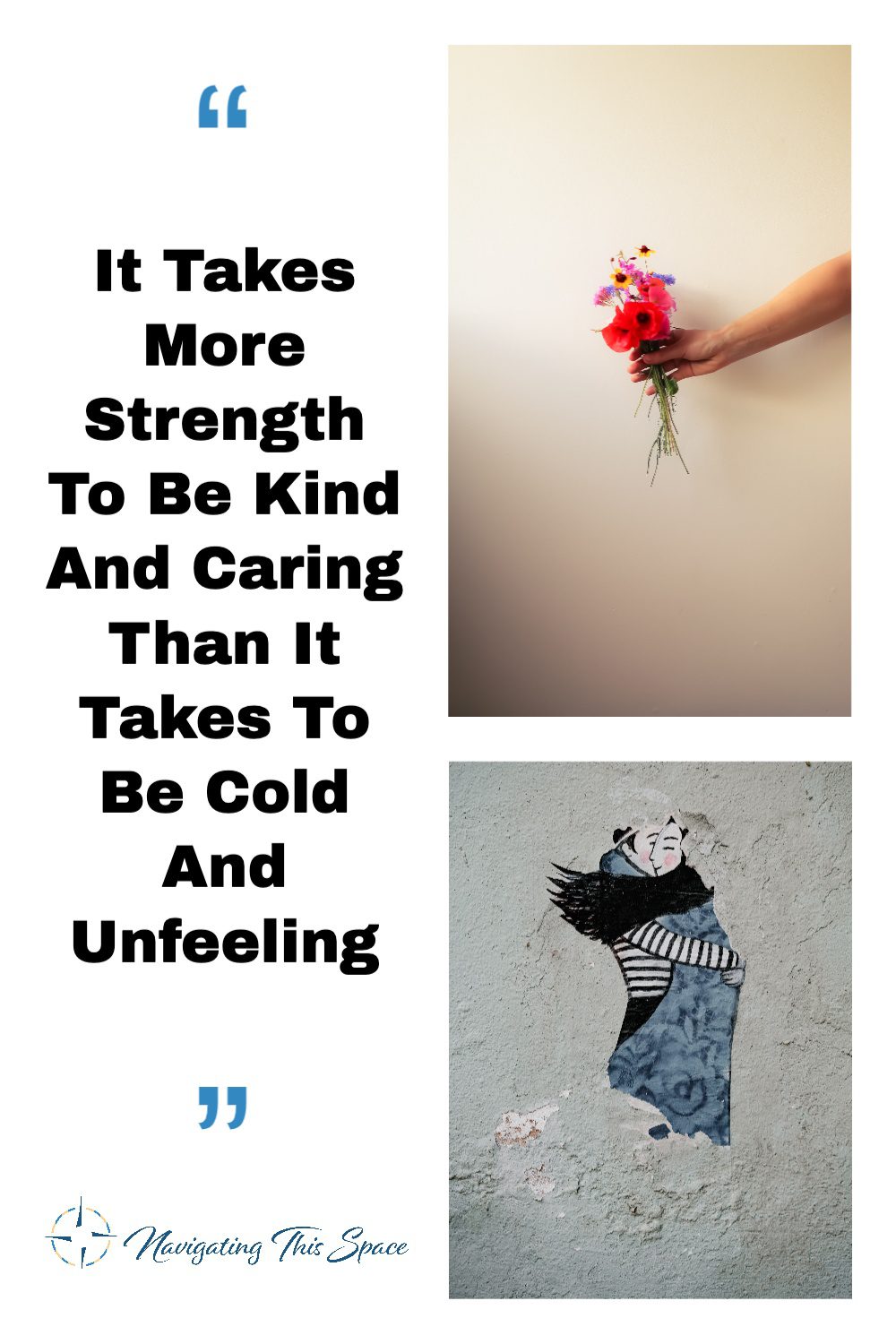
People open up more to accepting help when they feel safe. Create a judgment-free zone for them to share their honest feelings.
Start by being more kind to yourself, focusing on the good in your life, taking care of your physical health, and refraining from all judgments — all these are self-compassion practices.
When you have created that safe space for yourself, begin to invite other people to join you.
Share your thoughts with them, be open-minded, and show compassion for what they might be going through.
Have patience with the process, use humor when appropriate, and listen empathetically without needing to fix that person.
Remember the goal here is to help, never to judge. This simple act of compassion will create a unique connection that will help you and the person you’re helping to heal and move forward in life.
5. Take care of yourself
Self-care is imperative when it comes to self-compassion and showing compassion to those around you. As mentioned earlier, if you don’t take care of yourself, you’ll lose the ability to care for anything.
For example:
Harold had been a doctor for thirty years, and the last ten years he’d spent working in the emergency room. He was passionate about his work and loved being able to help people in their time of need. But over time, Harold became exhausted and depressed.
He felt like he was constantly putting out fires, but never had the opportunity to sit back, relax, and assess how his work impacted him on an emotional and physical level.
With the stress of his job, he became less concerned with his patient’s feelings. He lost his ability to feel compassion for the people he was helping.
Without proper self-care, Harold’s compassion for his patients and self-compassion for himself depleted.
6. Stop comparing your life to others
The thing about comparison is that it’s usually a matter of envy. Comparing your life and achievements to another person will not only create negativity within you but also do the same for those around you.
Self-compassion is a form of self-love. It’s about taking care of your needs, meeting those needs with kindness and understanding, being gentle with yourself in times of failure or hardship, and recognizing that you are human just like everyone else around you.
Channeling self-compassion in times when you feel yourself comparing your achievements will help you to be more kind to yourself.
You have a lot to be grateful for. So, turn to your accomplishment list when you have the urge to compare yourself.
7. Make peace with the past
The past is the past. You cannot change it, no matter how hard you try. Learn from your experiences, and do better in the future. Doing so will allow you to make peace with your mistakes and appreciate them.
To wrap it all up
I’ve learned that self-compassion is not only a way to increase my own happiness, but it also increases the amount of care and compassion for people in need.
In case you were wondering about the well-being of the JetBlue passenger, we were informed that everything was okay.
If you enjoyed this blog post on compassion and self-compassion, please share it with your friends! I hope that it has helped to put things in perspective for you.
As always, thank you for taking the time to read my work.

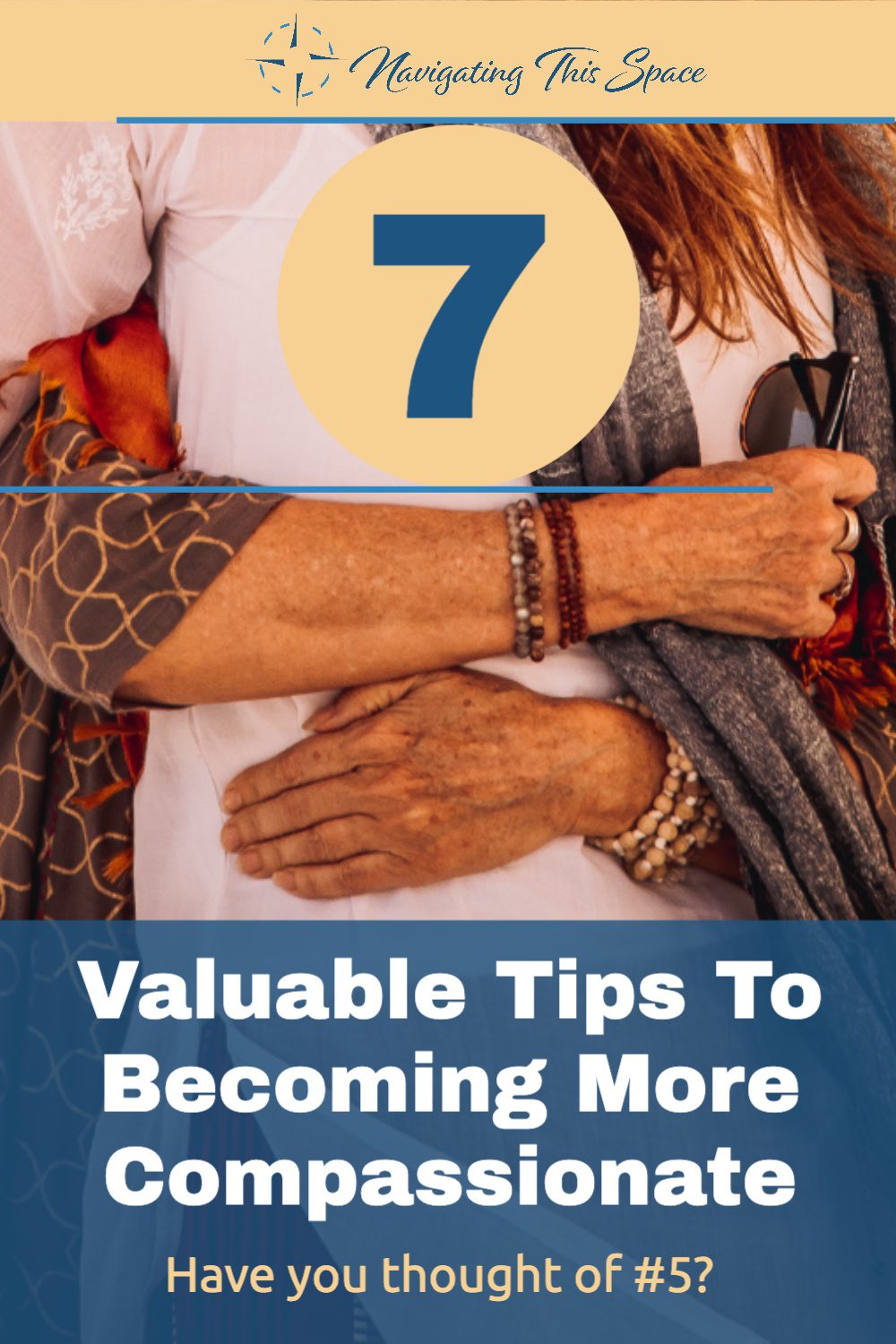
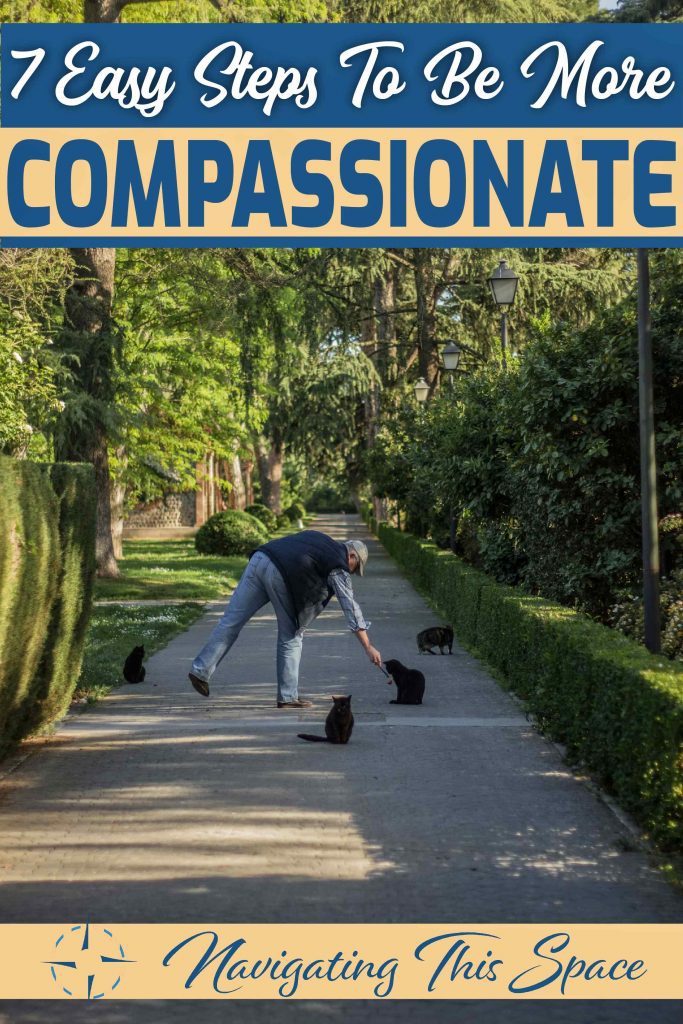
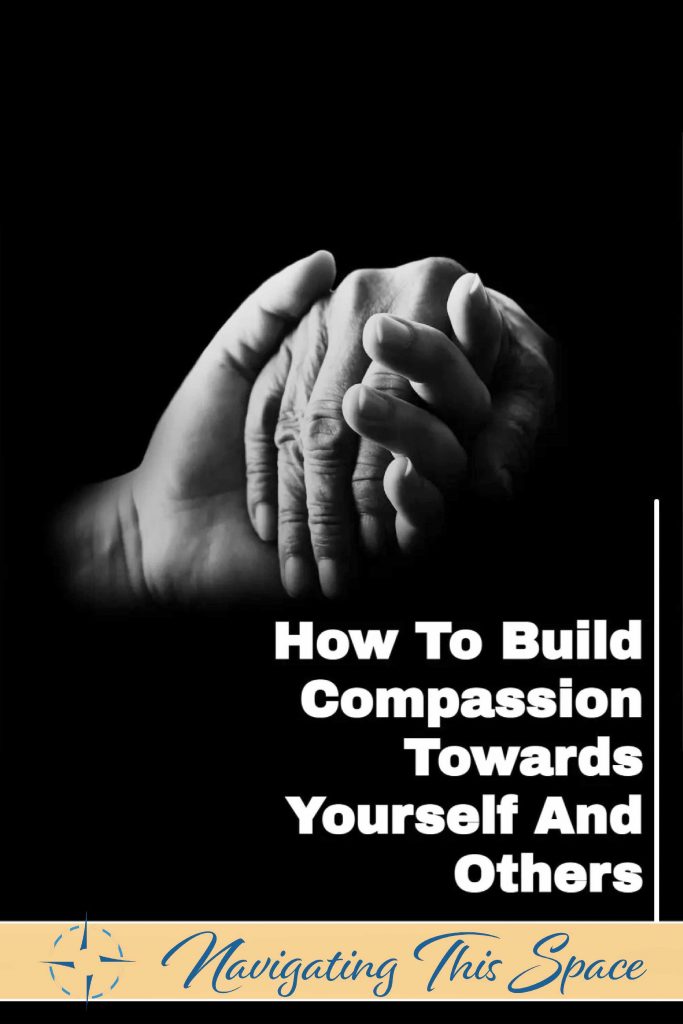


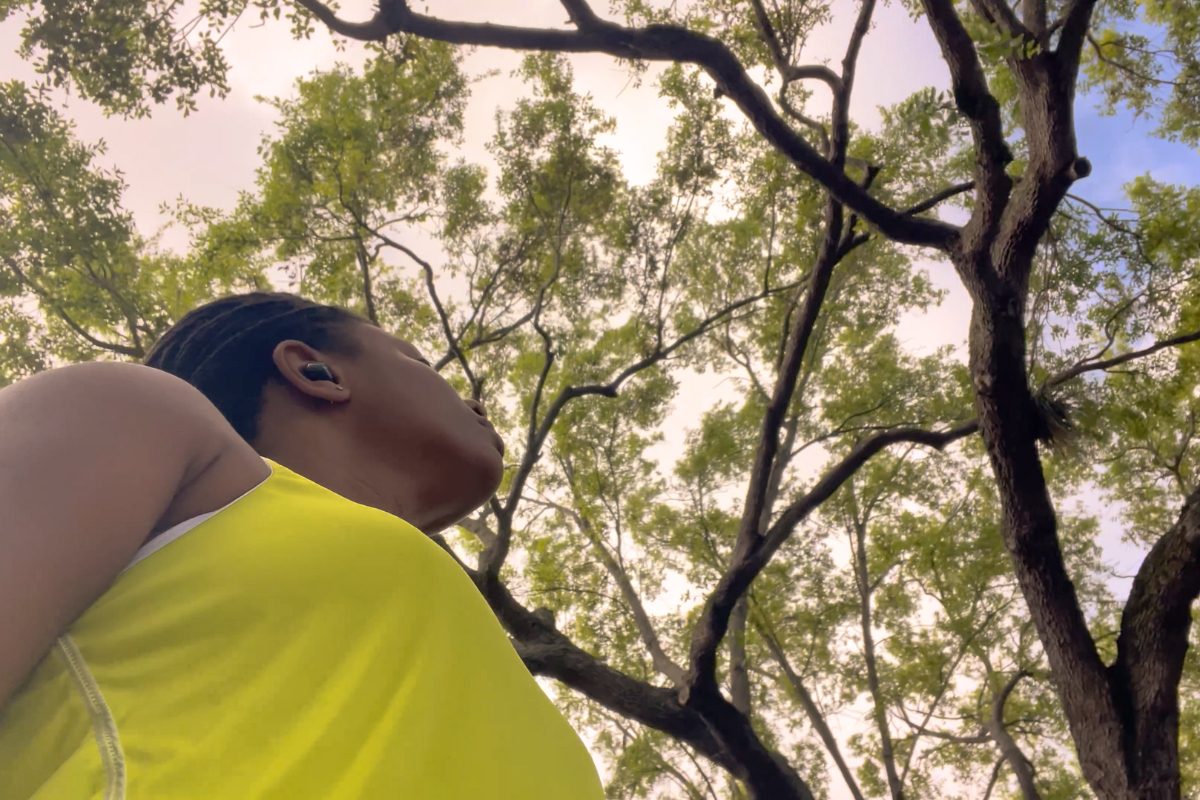
Great tips! I used to be very hard on myself until, a few years ago, I learned the meaning of self-compassion. I used to think of it as a weakness, but I completely changed my mind. It’s essential to our mental well-being! I am still working on tip n.7… make peace with the past.
Another amazing post! You did a great job explaining what compassion is, giving an example, and then giving tips on how to be more compassionate. I look forward to reading more posts!